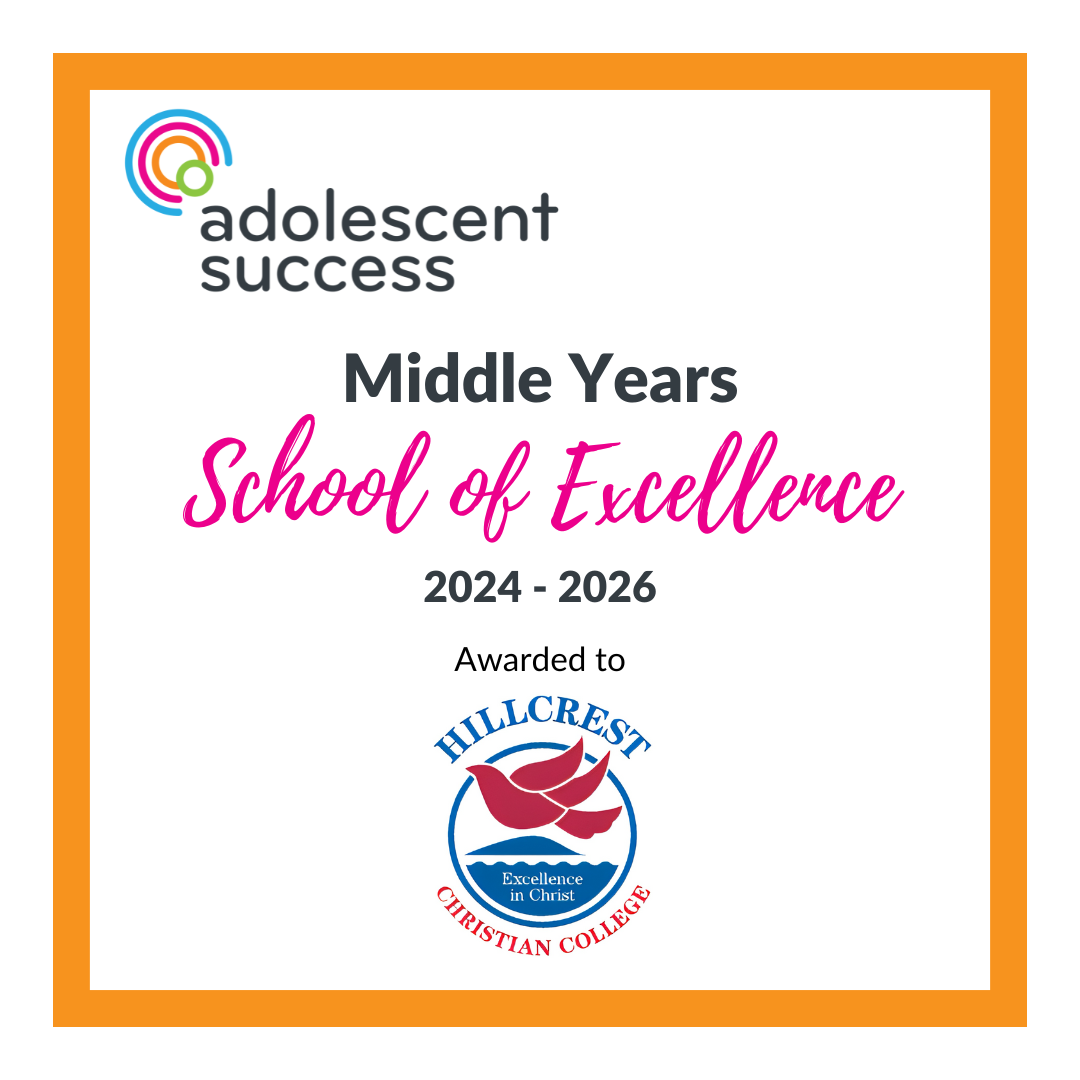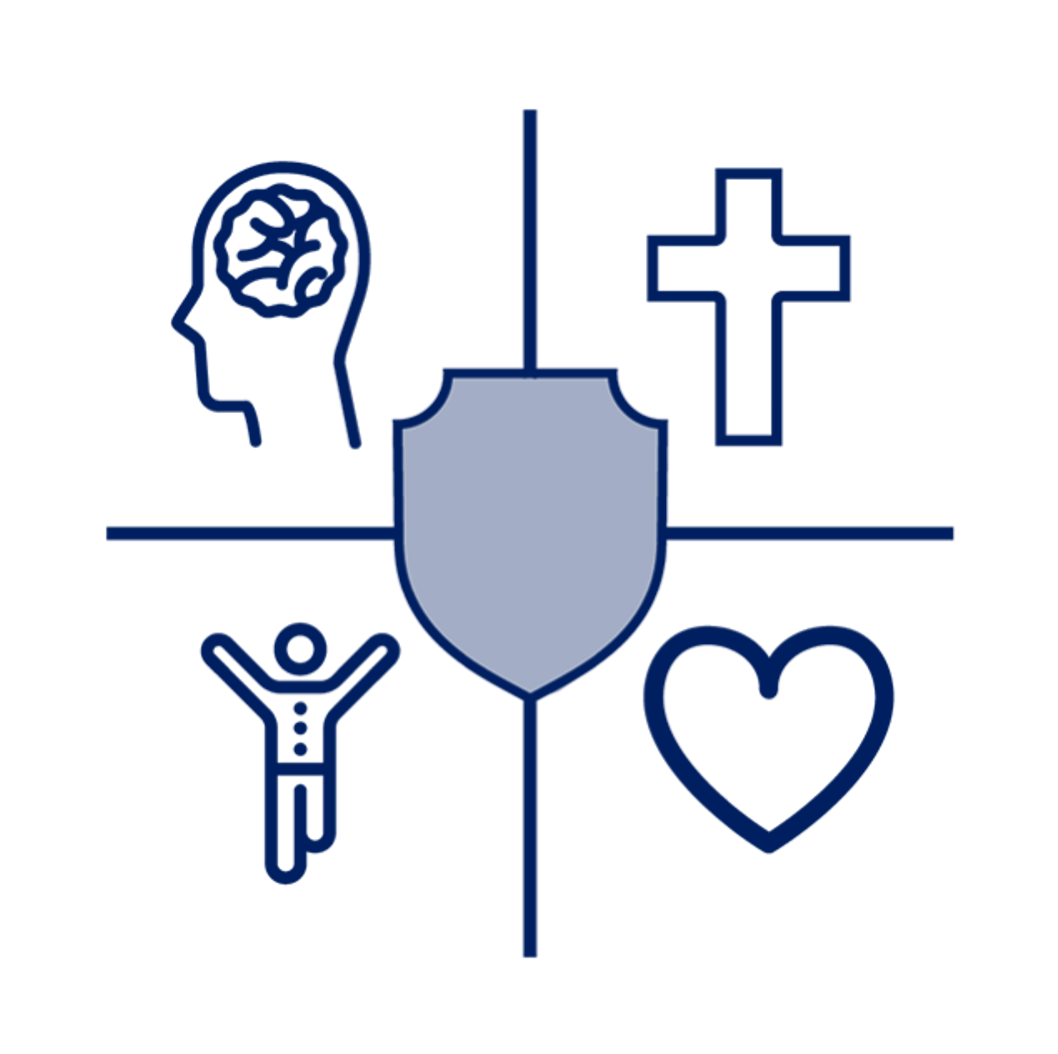
As a parent of a student in Year 3 or 4, you might feel that senior school is still a few years away. But in reality, now is the time to start considering your options.
Choosing between starting middle school at Year 5 or waiting until high school in Year 7 can make a significant difference in your child’s social and emotional development.
Without early planning, you could miss crucial enrolment periods or the opportunity for a smoother transition into adolescence. So, which path provides the best environment for your child’s growth, and how can you make sure they’re set up for a confident, successful journey through the school years?
Middle school isn’t just a bridge between primary and high school; it’s a critical phase where your child’s friendships, identity, and academic confidence can take root.
If we explore some of the key differences between middle and high school and why Hillcrest Christian College’s Middle Years Program can offer an ideal transition.

The years from ages 10 to 14 are essential for development. Research from the Australian Council for Educational Research (ACER) highlights this phase as a period of rapid brain growth, especially in areas related to decision-making and emotional regulation.
This is also a time when children begin forming their identities, supported by a blend of independence and guidance from trusted adults.
By entering middle school at Year 5, your child has the opportunity to build foundational social skills, forge friendships, and develop a sense of belonging, all in a supportive, structured environment.

Friendship is crucial to adolescent wellbeing. The transition to Year 5 allows students to forge strong, lasting relationships within a stable peer group that they can carry into senior school. Starting in Year 7 often involves juggling new friendships, academic demands, and social pressures all at once, which can be overwhelming for many adolescents.
At Hillcrest Christian College, the Year 5 program provides a close-knit community where students can build confidence in their social skills, supported by programs like SHIELD and Life Groups, which promote emotional and social growth.
Emotional and Academic Support: A Unique Middle School Experience
Adolescence is also when mental wellbeing becomes more complex. Hillcrest Christian College’s Educational Model places a strong emphasis on emotional health, resilience, and coping skills. Starting middle school at Year 5, with such programs in place, offers students the personal support they need to manage early adolescence.
In contrast, high schools often emphasise academic achievement over wellbeing. A Year 5 start allows your child to develop resilience and life skills before facing the additional pressures of high school.


Year 5 Entry: The gradual shift from primary to secondary is seamless. Core teachers and specialist classes balance familiarity with new learning challenges.
Year 7 Entry: Adjusting to a high school environment, new friendships, and academic pressures can be overwhelming for some children.
Year 5 Entry: Provides two years to establish a strong friendship base before entering senior school, fostering a stable and supportive social group. Hillcrest also supports a gradual transition from traditional classrooms to more open-plan, independent, and collaborative learning environments.
Year 7 Entry: Entering high school without established friendships can make social transitions more challenging.
Year 5 Entry: Hillcrest’s Secret Skills program introduces self-management, collaboration, and resilience, setting students up for future success.
Year 7 Entry: Without this foundation, students may struggle to adapt to more complex high school demands.

The Middle Learning Community at Hillcrest creates a bridge where your child can explore new subjects and develop critical life skills within a nurturing, structured environment.
A stable cohort means fewer disruptions and a stronger sense of belonging as there is an intake of new students.
Programs like SHIELD provide emotional support as they navigate adolescence.
Starting middle school in Year 5 enables your child to develop study habits before high school.
Essential life skills, from collaboration to problem-solving, are fostered.
Hillcrest Christian College’s Year 5 program provides these benefits intentionally, giving students a head start towards a balanced, fulfilling education.

The demand for Hillcrest’s Year 5 Middle Years Program is growing, and with no intake at Year 7, spaces are limited.
Starting in Year 5 ensures that your child won’t miss out on the critical benefits of middle school (Middle Learning Community from Years 5-8) It also helps them avoid the often-overwhelming transition into high school at Year 7. A smooth transition now means they’ll feel more confident, supported, and prepared for the future.
Many parents haven’t yet turned their minds to the changes that come with adolescence, especially when their child is still thriving in the early years.
This FAQ unpacks what’s just around the corner and how Hillcrest’s Middle Learning Community is designed to support families through that next stage with care, clarity, and confidence.
That’s exactly why we start early. While your child may seem young, research shows emotional and social changes often begin around age 9, well before they look like teenagers.
Hillcrest’s Middle Learning Community begins in Year 5 to support identity, friendships, and confidence before adolescence takes hold, so they grow through it, not get overwhelmed by it.
While most schools begin high school at Year 7, when adolescence is already in motion.
Hillcrest starts the middle years journey earlier, from Year 5, with intentional transition support. This allows students to build confidence, friendships, and self-awareness before the emotional turbulence of puberty and social comparison peaks.
Psychologists agree that early adolescence is a critical window for preventative support. Shifting schools or peer groups in the midst of hormonal and identity change (typically around ages 12–13) can increase anxiety, social withdrawal, or emotional overwhelm.
“Students are more resilient when strong peer connections and adult relationships are established before major developmental shifts begin.”
— Dr. Andrew Martin, Educational Psychologist, UNSW
Hillcrest’s model gives students a stable, relational foundation before these challenges emerge, not in response to them. It’s a preventative approach to wellbeing, not a reactive one. While challenges like friendship shifts or exclusion may still occur, our goal is to create a relational, values-based culture where students feel guided and supported through them, not left to navigate them alone. |
Learning needs change significantly in the middle years. A passive or content learner at 7 can feel unchallenged, anxious, or disengaged by 10 or 11
Our teaching approach adapts as students grow. We aim to keep learning both engaging and developmentally appropriate, encouraging stretch and support across academic levels. This is seen with our College SHIELD, identifying that there are distinct stages of learning.
Mood swings, irritability, and emotional sensitivity often begin before parents expect, particularly around Year 5. These are often early signs of puberty, not just personality.
We embed social-emotional learning across the curriculum. While we can’t prevent every emotional challenge, we aim to give students the tools and language to navigate them with confidence.
By Year 7, many students have already internalised peer hierarchies, social labels, and academic habits, which are much harder to reframe later.
Our intention is to build strong relationships, routines, and belonging early, so students enter adolescence with stability, rather than trying to find their footing midstream.
Many parents wonder when to begin encouraging independence, especially when their child still thrives on structure, guidance, and close relationships. But around ages 9 to 11, children naturally begin seeking autonomy, decision-making power, and peer collaboration, even if they don’t say it outright.
Hillcrest nurtures this emerging independence through a gradual release approach. Our SECRET Skills and flexible learning spaces help students practise real-world life skills like self-management, initiative, and emotional regulation — all within a structured and supportive environment. These skills are crucial before students reach the rigidity of senior schooling in Year 10.
“Emotional intelligence is a stronger predictor of success than IQ — not only in school, but across career performance, wellbeing, and relationships.” — Dr Daniel Goleman, Psychologist & Author of Emotional Intelligence
Our goal is to walk alongside each student as they grow, giving them room to try, reflect, and mature, with guidance that adjusts as they do.
© 2025 Hillcrest Christian College. All Rights Reserved.
ACN 010 381 334 ABN 68 947 459 366 CRICOS No. 01043C
Site: YourSchool